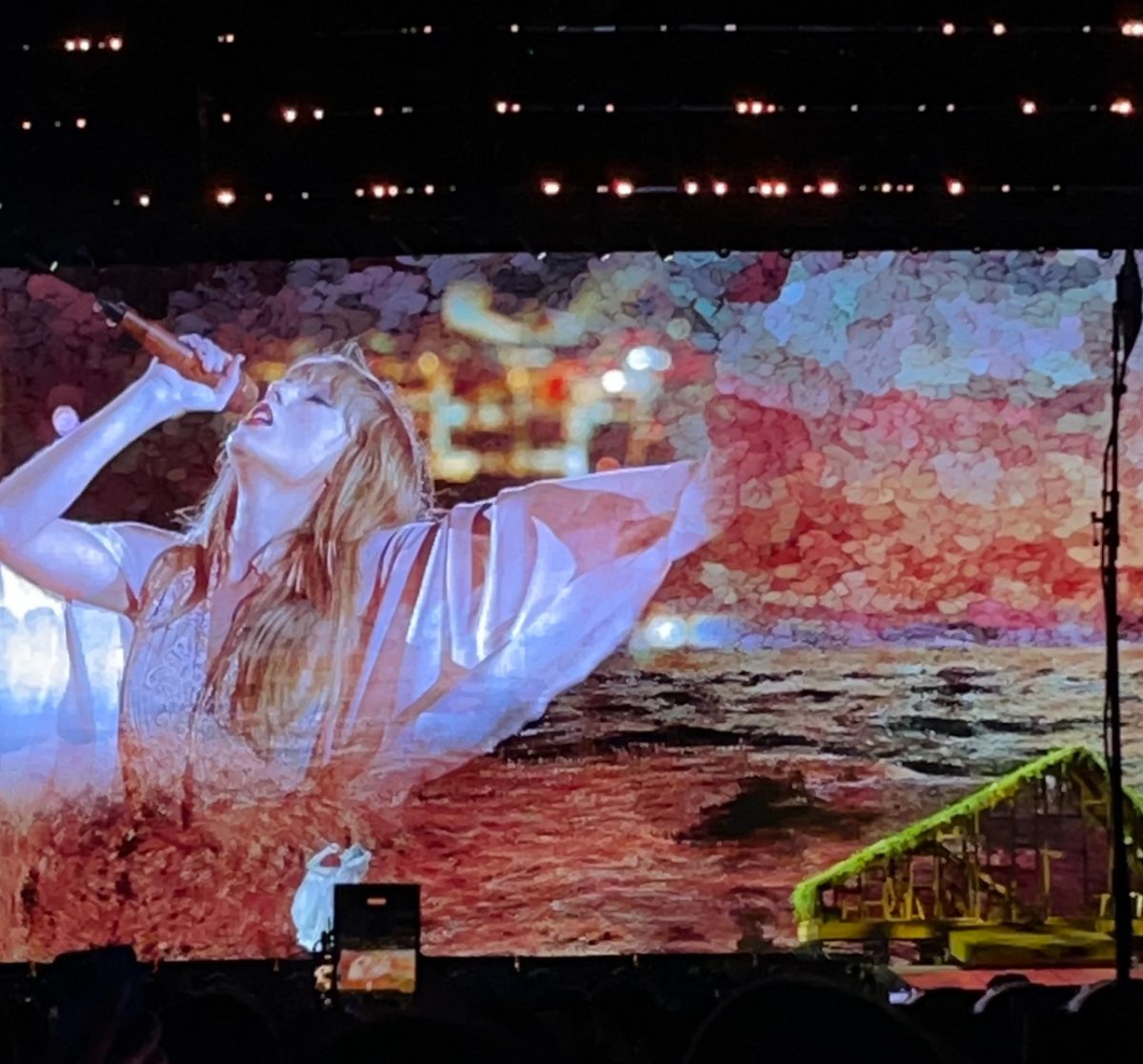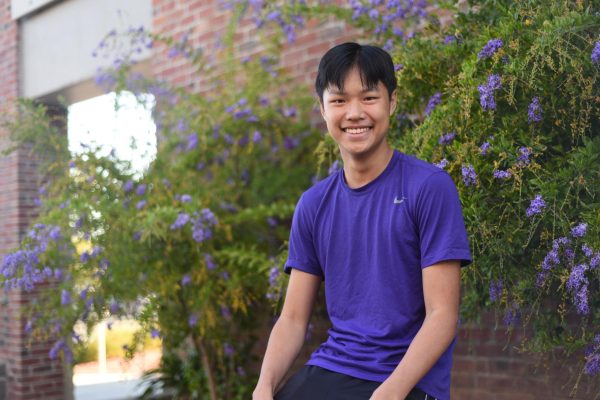From sold-out stadiums for the Eras Tour to social media frenzies, pop sensation Taylor Swift becomes increasingly popular after each album drop, with her impact expanding to college-level courses. Universities across the nation, including Stanford University, University of California, Berkeley, University of Florida, University of Delaware and Brigham Young University, have all adopted Swift-centered courses into their curriculum.
Associate instructional professor at the University of Florida, or UF, Melina Jimenez introduced the honors course “Musical Storytelling with Taylor Swift and Other Iconic Female Artists” in January of this year. Taking inspiration from a Taylor Swift-focused workshop that Jimenez attended last summer, she created her own course at UF for students who are Swift fans, also known as Swifties, to compare classic artists and their music to Swift’s discography to demonstrate the evolution of music over time. Each week Jimenez organizes a playlist composed of six to eight songs by Swift for her students and prepares discussion questions that correlate to each playlist. Despite not being a Swifty herself, she decided to tackle the challenge of starting this course alongside her two co-instructors.
“I asked my students at the beginning of this semester if they were Swifties and every single one of them said yes,” Jimenez said. “I wanted to teach the class and facilitate the discussions so that I could learn from them and introduce them to artists that they may not have encountered or might not have paid that much attention to before. Seeing them make those links between really popular current artists and historically popular artists is really fun and lets them share depth of knowledge.”
By utilizing student interest in Swift, Jimenez says she allows her students to branch out to similar artists from many eras of music. Jimenez believes that this provides her students with a diverse understanding of music through different lenses. Sophomore Ryan Li agrees with Jimenez, reflecting on his experiences playing in the MVHS Band and learning to play modern popular songs. He finds that this approach of introducing popular artists to the curriculum effectively engages students, as it makes practicing music and learning a lot more relatable.
However, Li believes focusing the course on Swift can lead to backlash due to polarizing opinions surrounding the artist. He mentions the 2024 Grammy Awards where Swift was awarded “Album of the Year” and later faced severe criticism with some saying she didn’t deserve the award compared to other artists nominated. Despite this potential backlash, Li still finds the idea of the course to be appealing, even considering taking it himself when in college.
“There are definitely a lot of arguments about how it might be taking away from students’ education because not everybody likes Taylor Swift,” Li said. “But you can learn about music, such as the different genres of music, and about other music classes like band when you talk about different composers and musicians. I think you should take the course if you want to, and if you don’t, then it doesn’t really affect you. Considering how big of a phenomenon Taylor Swift is at the moment, I think the class is a good idea.”
Associate Professor at Penn State Berks, Michelle Ramsey, plans to implement a Swift-driven course in the fall. She finds that the backlash surrounding the course is unprecedented, as she believes that the course allows students to learn about serious topics in a more comfortable manner.
 “Many people don’t understand why we would study popular culture and thus think it’s a waste or it’s ‘fluff’ and not serious, but ideology is most powerful when it’s least visible,” Ramsey said in an email interview. “When we are being entertained, we are often less likely to critically assess the ideologies about things like race, class and sex/gender because it’s ‘just entertainment.’ As a result, we can be more easily influenced by a popular song or film narrative than by a political advertisement where ideologies are more clearly communicated and expected. Courses that focus on popular culture help students understand the ideological power of the media to influence our ideas about who we are, who we want to be and how we see the world.”
“Many people don’t understand why we would study popular culture and thus think it’s a waste or it’s ‘fluff’ and not serious, but ideology is most powerful when it’s least visible,” Ramsey said in an email interview. “When we are being entertained, we are often less likely to critically assess the ideologies about things like race, class and sex/gender because it’s ‘just entertainment.’ As a result, we can be more easily influenced by a popular song or film narrative than by a political advertisement where ideologies are more clearly communicated and expected. Courses that focus on popular culture help students understand the ideological power of the media to influence our ideas about who we are, who we want to be and how we see the world.”
Similarly, freshman Ruchika Varanasi, a long-time Swiftie, has her own experience with analyzing Swift’s music, having explicated and rewritten the lyrics of a Swift song for an eighth-grade project. Varanasi says she would certainly attend the courses given the opportunity, as she says she is interested in analyzing Swift’s music in an academic setting.
“She has become more well known in the last couple of years especially because of the Eras tour and the philanthropy work she does,” Varanasi said. “I think because of that, most of her music is very interesting. I think the music aspect of her as a person is important to learn about because modern music has changed so much, and learning about the different parts of music can actually help you create your own songs.”
Despite her interest, Varanasi highlights the issue of representation in modern music and in this course. She states that these courses do not draw attention to minority artists by only highlighting popular stars like Swift.
“I feel like a lot of people would want to advocate — me personally as well — for more diversity in music,” Varanasi said. “It’s a great course, but I want to see other artists getting the chance to have their own course and figuring out their music as well. I feel like oftentimes we see people dominating the music field and it’s underrepresented for other races, such as Asians.”
Acknowledging this lack of representation Ramsey plans to address racism as well as gender discrepancies in the music industry when creating her Swift-focused course. However, Ramsey plans to take a different approach than what Varsani suggests. In her course curriculum, she hopes to use Swift as a standard to visualize prejudice in the industry.
For example, when discussing racism, Ramsey plans to address “the protections Swift gets from her whiteness,” by comparing her struggles to women of color in the industry, such as pop sensation Beyonce, who “must fight against racism and sexism.” To showcase the sexism in the industry, Ramsey plans to discuss Swift’s growth as a feminist, and the backlash the artist has received from it. Ramsey finds that discussing these topics through the example of Swift is important, as she believes that the standards portrayed onto female artists not only impact the musician but also their audience.
“Women in the music industry have to live by different standards,” Ramsey said in an email interview. “Taylor talks about this in her song ‘The Man’ and that song resonated with so many women because we also experience double standards linked to gender roles and sexism. Gender role expectations impact what people ‘expect’ female artists to look like and to sing about. You would be hard-pressed to find a popular, female singer that doesn’t hold up to a standard, and very Western, attractiveness. Women are expected to look a certain way and to play certain roles in order to succeed in the music industry. These differences in gender roles don’t just impact the musicians, they also impact the population paying attention to those musicians.”
By teaching this course, Jimenez believes that she has grown as a professor, despite not being familiar with Swift’s music beforehand. Like Ramsey and Varanasi, she admires Swift not only for her music but also for her ability to inspire students across the globe.
“When we’re talking about it in-class, even though she’s this very popular famous person, she has shared experiences with everyday people, like college students and professors,” Jimenez said. “They can see themselves in her music, even though they’re living a very different life. Her popularity is what’s leading instructors or professors to create courses because you can harness that popularity and that passion in students to study topics in other ways. Students are already passionate and they can make these connections between different songs because they know them so well.”












